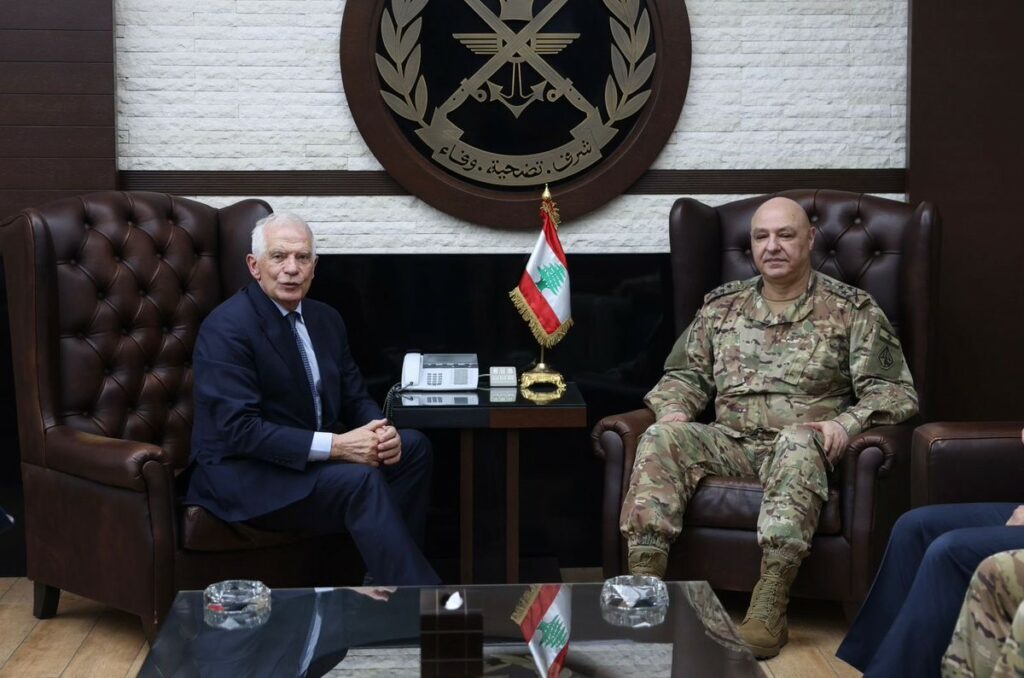Outgoing EU High Representative Josep Borrell visited on Sunday Lebanon where he called for an immediate ceasefire while also expressing support for the US proposal for a diplomatic solution of the conflict.
This was as he said in his press remarks the third time he visited Lebanon this year. His visit followed a visit to Jordan where he received an honorary doctorate by the International Relations School of the University of Jordan. In his meetings in Jordan, he praised the country as an “anchor of stability and wisdom in the eye of the storm” thanks to King Abdullah.
From Jordan he wanted to go to Israel, which he has visited once during his five-year’s term as High Representative, but that was not possible. Instead, he went to Nicosia in Cyprus, where he gave a keynote speech at a meeting with Israeli and Palestinian supporters of the Alliance for the implementation of the two-two state solution.
His last commitment on 28 November before leaving his job will be to co-chair the meeting of the technical working groups that are trying to look at how to advance the two-state solution. A previous meeting was held in Saudi Arabia with Arab and Muslim countries.
“What is going on in the Middle East, and, in particular, here in Beirut, is putting the international community at a test if we are really willing and able to make peace,” he said in Beirut.
He was critical against the Lebanese government. “To expedite the solution to the war, Lebanese leaders need to take up their political responsibility by starting to elect a President and put an end to a two years long vacuum of power in Lebanon.”
“We must pressure the Israeli government and maintain the pressure on Hezbollah to accept the US proposal for a ceasefire,” he added, claiming that the proposal is pending with the final agreement with the Israeli government. He did not mention that the war started with Hezbollah, an Iran-armed proxy, attacking Israel in solidarity with Hamas.
In fact, while the gaps between the two sides have narrowed significantly, there are still differences between them, especially as regards the supervision and enforcement of the agreement which will require the disarmament of Hezbollah and its withdrawal from southern Lebanon.
The UN peace keeping force in southern Lebanon, UNIFIL, which Borrell supports, turned a blind eye to Hezbollah’s military build - up close to the border with Israel, in violation of UN Security Council Resolution 1701 from 2006.
The EU supports the Lebanese government army and is ready to devote € 200 million to strengthen and train it so that if can fulfill its role, Borrell said. He also met the Lebanese Armed Forces commander Joseph Aoun to discuss with him how the EU can support it both financially and technically.
The army consists of soldiers from all religious communities in Lebanon. Aoun has warned that any order to them to confront Hezbollah would not be obeyed or lead to civil war in Lebanon. If UNIFIL’s mandate cannot be revised, the alternative would be an international force consisting of EU countries and/or Arab countries that have made peace with Israel.
M. Apelblat
The Brussels Times

